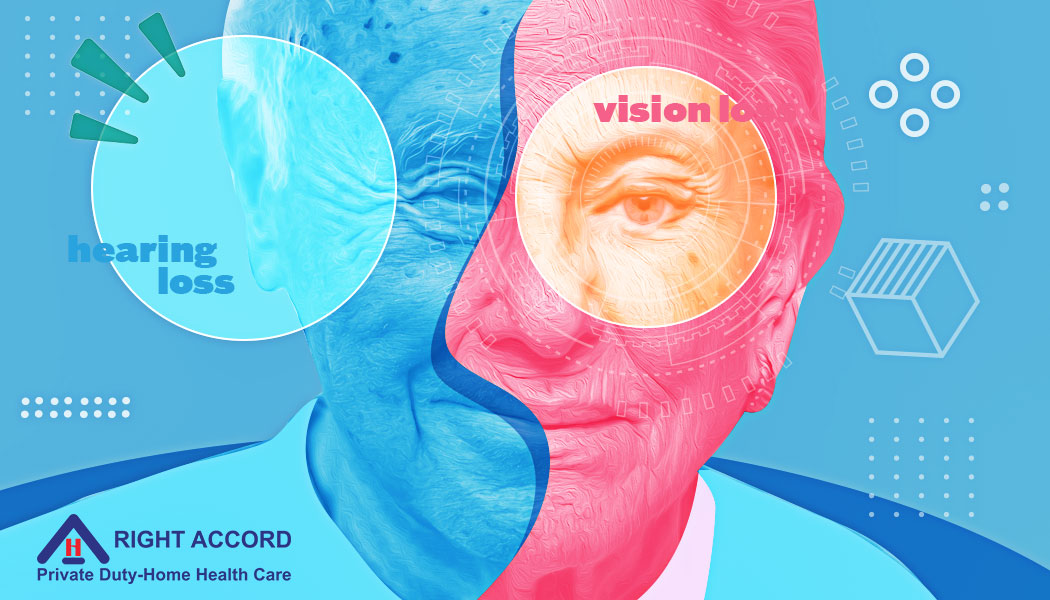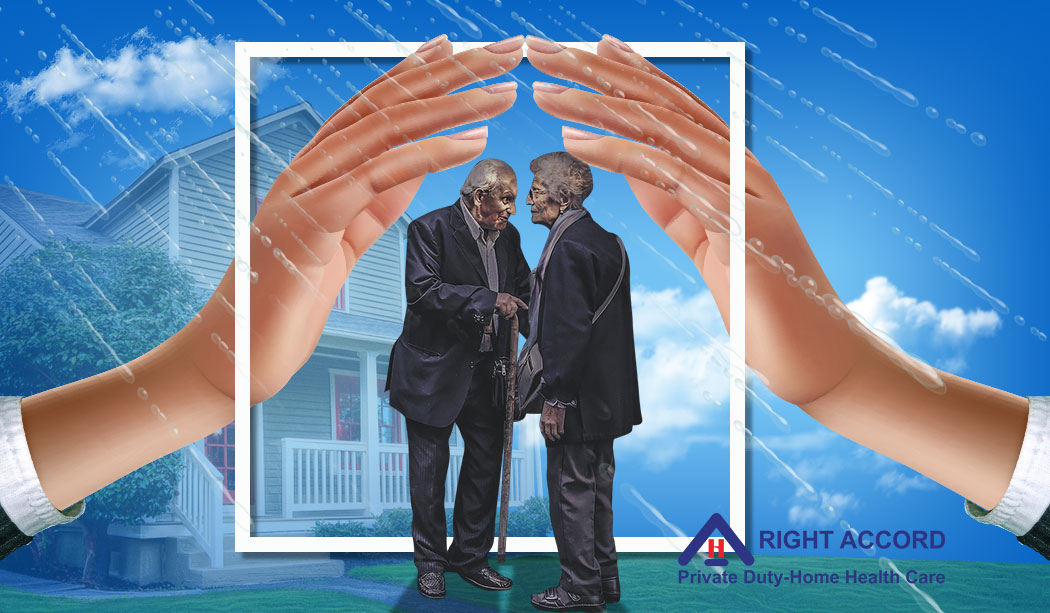· 6 min read
12 Smart Tips to Aid Vision and Hearing Loss in Older Adults
Dual sensory impairment such as vision and hearing loss in older adults truly affects their quality of living. Here are 12 Smart Tips to help them cope with it.

By: Rosemarie Tamunday Casanova — RN, BSN, MHA
Sensory problems are very common experiences among the elderly in the US population. Indeed because these experiences are as common as they are, they tend to be overlooked or dismissed.
In addition, normal age-related changes in vision and hearing could be confused with abnormal sensory changes which can compromise function.
In the same vein, abnormal changes due to ear and eye pathology may be confused with the normal, age-related sensory changes.
When reductions in hearing and vision exceed normal age-related changes which are as a result of eye pathology, then they may start to compromise a senior person’s ability to carry out routine activities which define social roles and quality of life.

Photo by Rene Böhmer on Unsplash
Either one of loss of hearing or vision can affect the most common and simple tasks.
A decline in sensory function may compromise a senior’s ability to hear whispered conversation or side remarks, read the newspaper, write notes, and recognize facial expressions.
Impairments in hearing and vision are associated with a decreased quality of life, an increased physical disability, hip fractures, imbalance, falls, and associated mortality.
Referred to as Dual Sensory Loss (DSL), according to research, about 10% - 20% of seniors are estimated to experience a certain degree of impairment in both hearing and vision.
Because it is as isolating as it is, when untreated, DSL is associated with cognitive decline, depression, and poor health outcomes. In order to aid aging persons to maintain good quality life, it is important to understand the reasons behind their vision and hearing impairments.
Identifying the reasons behind their sensory deficiencies and how these could affect their daily lives gives room for a more specific approach for therapy.
In the meantime, here are some general tips regarding how to take care of elderly adults who have hearing and vision loss:
Vision Loss

Photo by Aris Sfakianakis on Unsplash
A wide range of visual problems exist that occur among seniors. The four most common causes of vision loss are:
- Age-related macular degeneration
- Glaucoma
- Diabetic retinopathy
- Cataract
Each of them leading to different kinds of visual deficits. Out of these, two of the commonest ones are glaucoma and cataract.
Here are some general tips below to aid an elderly adult in your care to have a better lifestyle inspite of their eye difficulties.
Ask them to Consult an Ophthalmologist
To begin with, they should have an ophthalmologist check their eyes in order to assess what the extent of their visual loss is and of course the functionality of both eyes.
Ensure that their Surroundings Have Good Lighting
It is very important to have light balance. Having too little or too much lighting may both be hazardous to their eyesight. Shroud reflective surfaces which produce strong light around them. Keep the lights on at daytime to help even out the indoor and outdoor light sources.
Remove Any Clutters in their Home
In order to minimize the possibility of seniors falling due to moving around the house, objects such as electrical extension cords and some other clutter that could cause them to trip and possibly fall should be removed.
Having a clear path in all the areas of the home will help to make their movement around the house much easier and safer.
Use Image Helpers/Optimizers
Make use of objects that have bigger prints and buttons. An electronic magnifier could also be given to seniors to aid them in reading and writing.
Utilize the Use of Technology
Helpful low-vision assistive technology could also be used for them and they include hand-held magnifiers, portable readers, lamps with magnification, and hand-held telescopes. Video magnifiers (Closed-circuit television) that use cameras to capture images can be used which are then enlarged on a computer screen.
Promote Healthy Communication with Them
Their environment should be one which promotes encouragement as well as honest communication. When seniors have moral support, they would be motivated to do their daily tasks and this would assist them to maintain a healthy lifestyle.
Hearing Loss

Photo by JD Mason on Unsplash
There are several causes of hearing loss, just like visual impairment.
According to research, a lot of persons who suffer from hearing impairment acquired it due to ear infections, head injury, medications, or genetics.
Sensorineural hearing loss is as a result of damage to the inner ear or auditory nerve. Conductive hearing loss occurs when there is an obstruction of sound waves from getting to the inner ear, for example, a build-up of fluid in the middle ear.
Hearing loss is also one of the top consequences of old age. Here are some tips to help with dealing with seniors who have difficulty hearing:
Check Early Detection
Early detection of difficulty in hearing helps in determining the correct treatment and is beneficial in preventing the hearing loss from getting progressively worse.
Sometimes, the conditions that lead to hearing loss can be treated with surgery or medication, as seen in some cases like cataracts or conductive hearing loss.
Use of Hearing Aid Devices
Hearing aid devices are helpful in boosting their capacity to hear. Hearing aid technology is fast evolving, and now offers more precisely designed amplification more than ever, including wireless-based functionalities which let users connect hearing aids with some other devices like remote microphones, smartphones, and computers.
Another option may be cochlear implants for seniors who meet certain criteria, however this needs substantial retraining for listening and communication.
Start with Rehabilitation
Rehabilitation also helps seniors to learn novel strategies for communication.
Optimize Your Way of Communication
Speak clearly, audibly, and slowly while communicating with the elderly using plain language. Try out different locations, voice volume, and pitch to assess which one works best for the individual.
Let Them Feel Your Emotion
Hold the person’s arm or hand while you’re conversing with them to indicate who you are. It also adds a sense of being connected and suggests a more personal approach which shows them you are interested in what they have to say.
Inform Them Clearly of your Intention
Don’t forget to let the person know you are leaving. It helps a lot to know what works best for a senior with dual sensory loss, so that these strategies can be communicated to everyone who is involved in their care, to help ensure their long-term health and independence.



